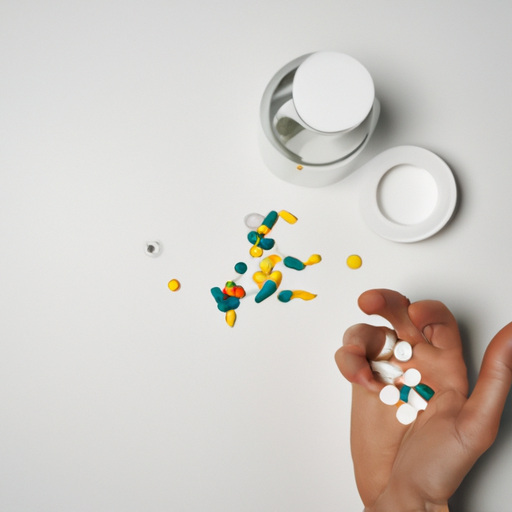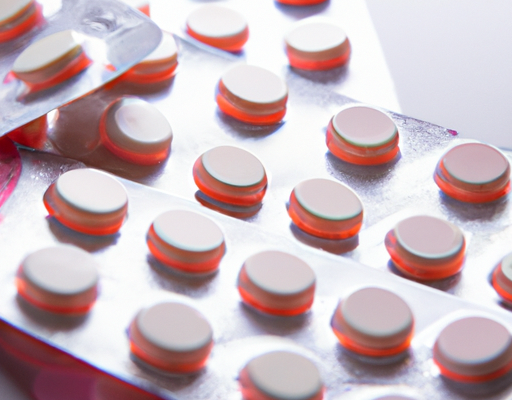Causes
Breakouts can often leave us scratching our heads, trying to determine what underlying problem may be causing them. While certain breakouts may simply be caused by overproduction of oil or poor hygiene, however, underlying health issues can sometimes be the cause of recurrent breakouts. People living with diabetes, for instance, may find that their breakouts worsen during times when their blood sugar levels are not controlled. Similarly, hormonal imbalances, caused by a number of potential underlying issues such as thyroid dysfunctions and PCOS, can create an imbalance in skin oils, through either too much or not enough, resulting in breakouts. Stress too can cause breakouts as it impacts hormones and increases skin oil production. While diet can play a role in breakouts, such as eating too much sugary food or processed foods, it is important to remember that it can be just one factor in a long list of underlying causes of breakouts.
Diet
Eating the right kind of food can play a key role in preventing breakouts. Despite popular belief, unhealthy junk food doesn’t necessarily cause breakouts. Nevertheless, what you consume can affect your skin health. Eating a balanced diet that is rich in vitamins and minerals can help keep breakouts at bay. Choosing fresh fruits and vegetables, lean proteins, and whole grains over processed, sugary, and fatty foods is a great way to maintain healthy skin. Try reducing your sugar consumption, as this can help regulate hormones that produce too much oil on the skin. Last but not least, make sure you drink plenty of water throughout the day to flush out toxins and keep your skin hydrated. Eating the right food can help your skin stay smooth, clear, and happy.
Hormones
Breakouts can be caused by many factors, but one of the most common causes is hormones. Hormonal changes can cause the body to produce excess sebum, which can lead to clogged pores and breakouts. Hormonal changes can be caused by stress, changes in diet, or certain medical conditions such as polycystic ovary syndrome. Many people find that their breakouts become worse during certain times of their cycle or during puberty due to the changing hormone levels in the body. Treatment for breakouts caused by hormones may include medications such as birth control pills or topical creams. It is important to speak to a doctor if breakouts are persistent in order to determine the underlying cause and the best way to treat it.
Stress
Many factors, such as diet, hormones, skin type, genetics, and lifestyle, can contribute to breakouts. Stress is another factor that can often lead to more breakouts. When we are stressed, the body produces more of the hormones cortisol, adrenaline, and testosterone, often leading to inflammation in the skin. This, in turn, causes an increase in oil production, leading to the growth of bacteria in the skin, which can aggravate breakouts. Taking the time to relax and care for one’s mental health can help reduce the effects of stress and reduce the occurrence of breakouts. Finding a way to de-stress and practice mindfulness and self-care can help the skin stay in balance and reduce the recurrence of breakouts.
Product Ingredients
Breakouts can mean more than just stress and hormones. It is also important to look at the products you are using and the ingredients they contain. To keep your skin looking healthy, it is important to read the labels of your skincare products and be aware of some of the more common ingredients which can increase acne. Here are some of the main ingredients to look out for:
- Sulfates
- Parabens
- Fragrance
- Phthalates
- Propylene Glycol
- Mineral Oil
These ingredients can be found in different types of skincare products, such as moisturizers and cleansers, and can clog the pores and irritate the skin, leading to more breakouts. Replace the products which contain these ingredients with natural and gentler formulations which are free of these dangerous additives. Doing so will help to prevent future breakouts and keep your skin healthy.
Environmental Factors
Breakouts are not just caused by hormones or genetics, but also by environmental factors. Common environmental factors that can trigger breakouts include the weather – humidity and wind can dry out skin or trap sweat and dirt on the skin. Pollution, smoke and smog can also cause breakouts, as can stress and a poor diet. Certain fabrics and make-up can also contribute to breakouts. It’s important to be aware of these environmental factors and take steps to reduce their impact on your skin. Wearing a hat outside on sunny days reduces exposure to UV rays, and avoiding oily and processed foods can help keep your skin healthy. Taking short breaks from wearing make-up and switching to breathable fabrics can help reduce the chances of breakouts.
Home Remedies
Breakouts can be both annoying and overwhelming to deal with. While there are plenty of over-the-counter and professional treatments available, some people prefer to use home remedies to help clear up their skin. Here are some natural remedies to help get rid of breakouts:
- Wash your face twice a day with a mild cleanser, such as tea tree oil or apple cider vinegar.
- Exfoliate your skin once or twice a week to remove dead skin cells and prevent clogged pores.
- Apply a spot treatment with tea tree oil or witch hazel to reduce inflammation.
- Use a gentle moisturizer to keep your skin hydrated.
- Drink plenty of water to help flush out toxins and keep your skin hydrated.
- Stay away from dairy and processed foods, which can lead to inflammation.
- Manage your stress levels, since stress can trigger breakouts.
If you find that home remedies aren’t helping your breakouts, it’s important to speak to a dermatologist. They can help you determine the underlying cause of your breakouts and create a treatment plan that is tailored to your needs.
Professional Treatments
When it comes to breakouts, professional treatments are the most effective way to gain control of your skin. While over-the-counter treatments can help reduce mild breakouts, they are not as effective as professional treatments. Here are some of the top professional treatments used to treat breakouts:
- Topical Retinoid Creams
- Topical Antibiotics
- Oral Medications
- Chemical Peels
- Light Therapy
The type of treatment your dermatologist will recommend for your breakouts will depend on the severity of your condition. Your dermatologist may also recommend a combination approach, such as topical antibiotics and retinoid creams. It is important to follow your doctor’s instructions to ensure that you get the best results from your treatment.





No Comments